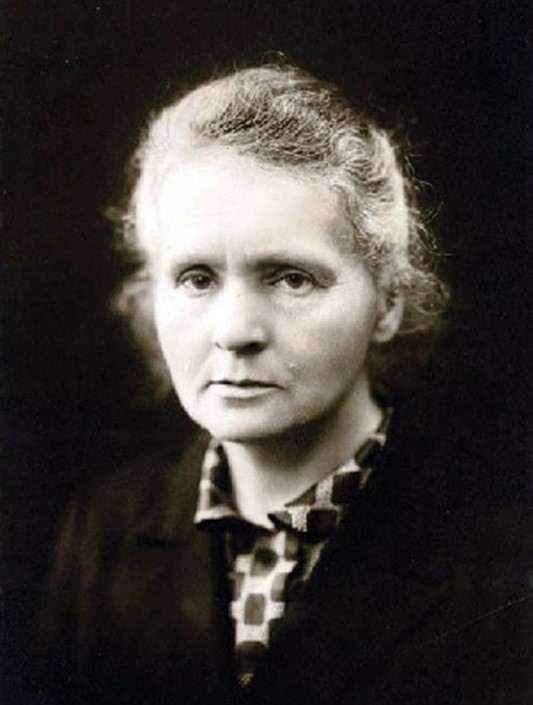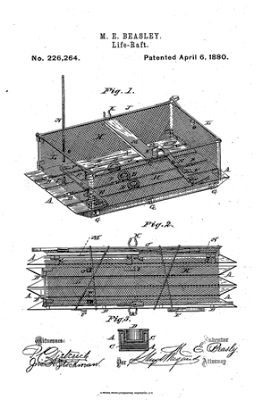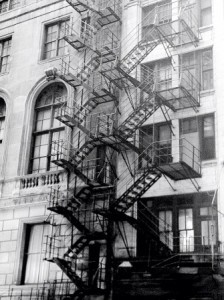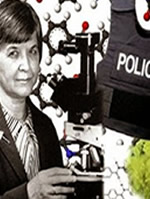“The Women who invented the world” – Women’s Day in a South African Context
On 9 August 1956, women of all ages, races and from all walks of life, marched together towards the Union Buildings in Pretoria to demand change. Although each person there knew that they risked possible arrest and detention, in excess of 20 000 brave revolutionaries rose up as one formidable force to stand up against the draconian pass laws which proposed further restrictions upon the movements and rights of women in South Africa. Each one of them knew that the change they sought would not come easy.
On woman’s day, we recognize and honour each and every woman, both in our country and across the globe. We herald their role in making the world a better place and applaud their many achievements.
Below are some remarkable woman, to whom we owe an exceptional debt of gratitude for some groundbreaking inventions that have literally changed the world and the way we live in it.
 1. Marie Curie – Theory of Radioactivity
1. Marie Curie – Theory of Radioactivity
Marie Curie, a chemist, was the pioneer in the research of “radioactivity”. Curie’s achievements included the development of the theory of “radioactivity”, techniques for isolating radioactive isotopes, and the discovery of polonium and radium.
Curie was the first woman be receive a Nobel Prize, the first person and only woman to win it twice and the only person in history to receive a Nobel Prize in two different sciences.
 2. Maria Beasley – The Life Raft
2. Maria Beasley – The Life Raft
Born in 1847, Maria Beasley was an inventor and successful business woman. One of her most iconic inventions was during the 1880’s when she invented the life raft.
While initially constructed of plank and wood, her design forms an integral part of the design of the life raft as we know it today. This important invention has saved countless lives over the years. The well known Titanic tragedy highlighted the importance of lifeboats as part of maritime safety regulations, and led to the 1914 International Convention for the Safety of Life at Sea, which still governs maritime safety today.
 3. Anna Connelly – The Fire Escape
3. Anna Connelly – The Fire Escape
These days a Building Fire Escape is mandatory in terms of our building and safety regulations. Anna Connelly patented the first outdoor fire escape with an external staircase in 1897.
This design was an important and revolutionary way of making buildings safer. The design not only made it safer for people exiting buildings in emergencies, but also enabled fire fighters to more effectively target fires and allowed them to battle blazes quickly and directly, thereby minimizing the risk of loss of life and damage to property. This now almost indispensable invention by Connelly, has saved countless lives over the years.
 4. Mary Anderson – Windshield Wiper
4. Mary Anderson – Windshield Wiper
During the winter months of 1902 upon a visit to New York City, Mary Anderson observed a man driving with both panes of a double front window open because he had difficulty keeping the windshield clear of falling sleet. She recognized the extreme health and safety hazard to both the driver and other fellow motorists on the road and, when Anderson returned to her home in Alabama shortly after her trip, she immediately got to work on her brainchild of creating a hand operated device to keep a windshield clear. Drivers were skeptical when Anderson presented the first manual windshield wipers. During this time people thought it was safer to drive with rain and snow on the windscreen, obscuring the road than to pull a lever to clear it.
Initially, the windshield wiper was patented as a handheld manual device with a spring. This design was later configured to the automatic wiper we know today.
 5. Stephanie Kwolek – Kevlar
5. Stephanie Kwolek – Kevlar
Kevlar is the material which is used in the manufacturing of bullet-proof vests and related safety equipment. This lightweight, high-tensile Kevlar (which is five times stronger than steel) can literally stop a bullet from penetrating whatever it is protecting.
During her analysis of long molecule chains at low temperatures, Kwolek per chance discovered the power of Kevlar. She accordingly observed how polyamide molecules line up to form liquid crystalline polymer solutions of exceptional strength and stiffness.
Today, Kevlar is used in many forms and products such as bulletproof vests, spacecrafts, helmets, tires, and protective gloves.
While it’s easy to look at the achievements of women from across the globe, it is important to remember that South Africa has its own set of extraordinary women across an array of sectors. We at SHP wish to pay tribute to some of these incredible women and their contributions to the country, in honour of Women’s Day.
 1. Thuli Madonsela – Public Protector
1. Thuli Madonsela – Public Protector
Thuli Madonsela, an advocate for gender equality and the advancement of women, served South Africa without fear or favour during her tenure as Public Protector from October 2009 to 2016. Madonsela has achieved various awards in her fight for, and advancement of, women’s rights in South Africa. These include the Forbes African Person of the Year 2016, being named one of Time magazine’s 100 most influential people of the world in 2014, Glamour Women of the Year and Women of Courage 2014.
After South Africa became a democracy on 1994, Madonsela, a human rights lawyer and activist, helped draft South Africa’s Constitution, giving up a Harvard scholarship to do so.
 2. Miriam Makeba – South African Singer and Human Rights Campaigner
2. Miriam Makeba – South African Singer and Human Rights Campaigner
Miriam Makeba was born in Johannesburg in 1932, during a time of economic depression. She was the daughter of a domestic worker, who was imprisoned for six months for illegally brewing beer to help make ends meet, and as a result, Makeba went to prison with her as she was just 18 days old.
Makeba started off her music career singing for her cousin’s band and only made a name for herself during 1954 when she sang for a band named the Manhattan Brothers. They subsequently toured South Africa, Zimbabwe, and the Congo until 1957.
Makeba also appeared in various short film musicals during 1957 to 1959. In 1949 Makeba was flown to Venice to receive an award for her part in Come Back Africa but the South African government, due to the negative publicity it was receiving at the time, revoked her passport and denied her entry the country. Accordingly, Makeba did not return and remained in exile abroad in countries such as the USA, where she collaborated with artists such as Paul Simon.
It was only after almost 31 years in exile, and around Nelson Mandela’s release in 1990, (and much upon his encouragement), that Miriam returned to the country to become a goodwill ambassador for South Africa to the United Nations.
Miriam also did various humanitarian work through her Zenzile Miriam Makeba Foundation, including the Miriam Makeba Rehabilitation Centre for abused girls. She also supported campaigns against drug abuse and HIV/Aids awareness.
3. Charlotte Maxeke
Maxeke, an avid churchgoer, joined the African Jubilee Choir in 1891, and toured England for two years. During this tour, Maxeke performed for Queen Victoria. Maxeke was talented in languages, mathematics and music and 1894, when she went on a second tour to the United States of America she stayed in the USA and studied at Wilberforce University in Cleveland. She graduated with a B.Sc degree, making Maxeke South Africa's first Black woman graduate.
Maxeke was an advocate of Women’s rights. She became the organizer of the Women’s Mite Missionary Society in Johannesburg, before moving to the Polokwane area. Maxeke and her husband later established a school at Evaton on the Witwatersrand. The Maxekes eventually went on to teach in other places, including the Transkei under King Sabata Dalindyebo. It was here that Maxeke participated in the king’s court, a privilege unheard of for a woman. They finally settled in Johannesburg, where they became involved in political movements.
Maxeke also wrote in Xhosa on the social and political situation occupied by women. In Umthetheli wa Bantu, she addressed the ‘woman question'. As an early opponent of passes for black women, she was politically active throughout her adult life. Maxeke helped organize the anti-pass movement in Bloemfontein in 1913 and founded the Bantu Women’s League of the SANNC in 1918. As leader of this organization, she led a delegation to Prime Minister Louis Botha to discuss the issue of passes for women, and this was followed up by a protest the following year.
Maxeke was also involved in multiracial movements. She addressed the Women’s Reform Club in Pretoria, an organization for the voting rights of women, and joined the Joint Council of Europeans and Bantus. Maxeke was also elected as president of the Women’s Missionary Society.
A true bastion of women’s rights, it is only fitting to honour a woman of her magnitude on this day.
4. Albertina Sisulu
Albertina Sisulu trained as a nurse, a profession that allowed her to take care of her siblings after her parents died when she they were very young, and later to be the sole breadwinner for her own children when her husband was imprisoned.
Albertina went to Johannesburg in 1941. She qualified as a state-registered General Nurse in April 1944 and as a Midwife in 1954.
She wasn’t actively involved in politics until she met Walter Sisulu in 1941. Her true political activity began in 1949 when she joined the ANC’s Women’s league.
Albertina Sisulu was one of the women who led the national demonstrations, leading no less than 20 000 women to the Union Buildings in Pretoria during the famous Women’s March on 9 August 1956. These protests continued afterward as women demonstrated their outrage at the pass laws and the ongoing forced removals.
In 1958, Albertina took part in a demonstration organized by the ANC Women’s League in Orlando. She was subsequently jailed with 2000 other women.
On 5 August 1983, while attending the funeral service of Rose Mbele, Sisulu was again arrested, and tried for furthering the aims of the ANC. She was sentenced to four years’ imprisonment. The case was eventually dismissed, but not until Sisulu had spent 7 months in solitary confinement in Diepkloof Prison.
On 19 February 1985, Albertina, and numerous other UDF leaders were arrested and charged with treason and terrorism. They were also accused of trying to overthrow the apartheid regime. Again Sisulu, the only woman in the group, was kept in solitary confinement.
This true bravery in the face of overwhelming adversity makes Sisulu a beacon of determination and courage to us all.
5. Mamphela Ramphele
Dr Mamphela Ramphele – struggle icon, businesswoman, author, academic, doctor, champion of women’s rights and remarkable woman.
Born in 1947, Ramphele excelled throughout her schooling career and went on to study medicine at the University of Natal in Durban. It was in her years at university that she became involved in politics alongside her partner Steve Biko. Together they became the front runners of the Black Consciousness Movement, which aimed to give black people a sense of their worth and power. Ramphele further dedicated herself to uplifiting the community by establishing clinics and running and literacy projects.
Ramphele became published academic in the 80s, earned her PhD in 1992, and made history in 1996 when she became the University of Cape Town’s first black, and first female vice chancellor. Further to these numerous achievements, Ramphele sits on the Mediclinic board, has won countless prestigious awards, and holds 18 honorary degrees.
Whilst there are many woman who have gained recognition for their advancements and achievements in the world, there are many that go unrecognised. These are the countless women who tirelessly make the daily thankless sacrifices that we so often take for granted. They are the ones to whom we really owe the world.
There are many things we can say about the women in our lives – our colleagues, our friends, our wives, mothers, sisters and daughters, but perhaps this sums it up best:

1.







